Salomé Beyer Vélez contributed to this article.
Globally, around 1.7 billion voters in over 70 countries took to the polls to cast their votes in what the International Institute for Democracy and Electoral Assistance deemed as the 2024 electoral super-cycle.
The Pew Research Center highlighted four major themes for democracies around the world, including difficulties for incumbent parties to stay in power and the strength that right-wing populism maintained throughout the year.
In Latin America, 2024 saw six high-ranking elections, resulting in historic feats for the region. The year comes to an end with Mexico’s first female president, Panama’s promised tackling of migration in the Darién Gap, and Venezuela’s still-pressing political crisis, among others.
This is Latin America Reports’ summary of the 2024 democratic elections in the region.
El Salvador
El Salvador’s right-wing president Nayib Bukele won reelection on February 4, securing a second term with over 80% of the vote.
However, reports from El Faro, a Salvadoran independent digital news outlet, alleged that Bukele’s self-proclaimed victory just two hours after the voting booths closed and before the Supreme Electoral Tribunal released preliminary results, was unfounded.
By the morning of February 5, the Tribunal had not reached 50% of the vote counts, although Bukele had already assured that he had won with “over 85% of the popular vote.”
 Image Source: Nayib Bukele via X.
Image Source: Nayib Bukele via X. The 43-year-old president was first elected in 2019 after having been mayor of the south-western Nuevo Cuscatlán from 2012 to 2015 and of the country’s capital, San Salvador, from 2015 to 2018.
During his first term as president, he was both praised for drastic reductions in homicide and gang violence rates, and criticized due to allegations of human rights abuses and intimidation towards journalists.
Since 2022, Bukele has declared national states of emergency over 30 times, which has allowed for an unprecedented reduction in homicidal violence. Regardless, all citizens’ rights of assembly and freedom of association are indefinitely suspended throughout these states of emergency.
Read more: El Salvador named one of the world’s safest countries in 2023: At what cost?
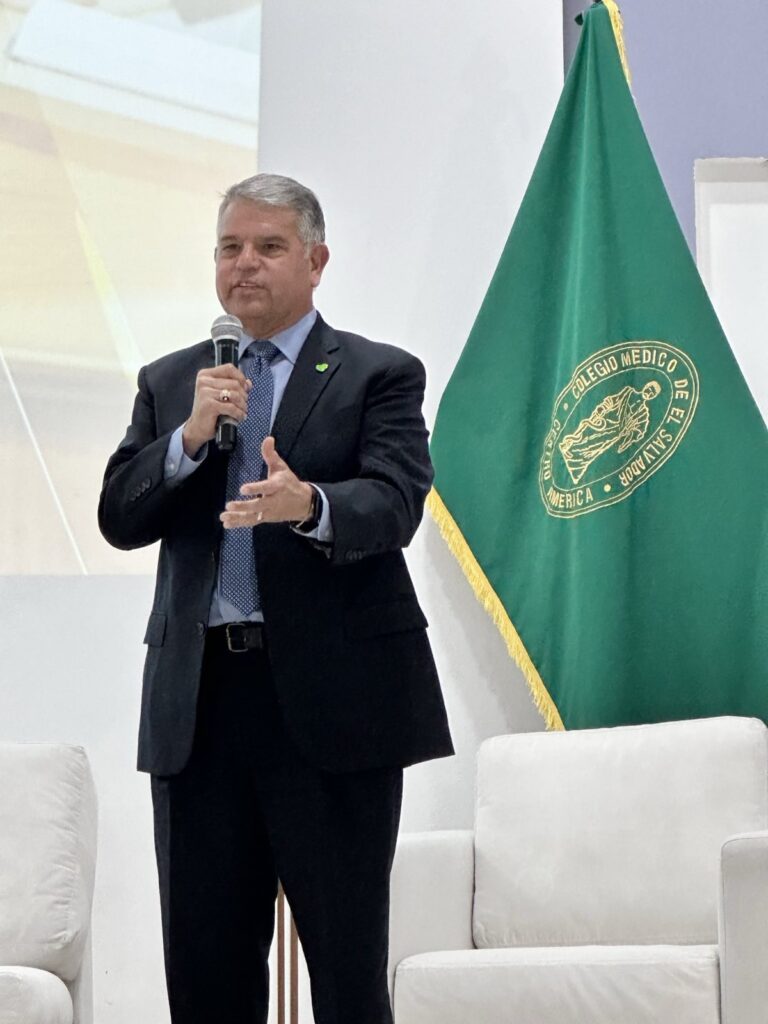 Image Source: Luis Parada via X.
Image Source: Luis Parada via X. The February 2024 elections were also contested by Luis Parada, an international attorney and former army officer who claimed that Bukele had made an illegal pact with Salvadoran gangs, installed a dictatorship and forced an illegal candidacy after having completed one term as president.
“From the moment that they allowed the current president to violate the Constitution by inscribing an unconstitutional candidacy, the Supreme Electoral Tribunal demonstrated that they are also subjects of President Bukele, and as such, unable to be an independent and trustworthy arbitrator in these elections,” Parada stated after losing the elections.
Regardless, Bukele claims that his administration has an approval rating of over 91%.
Mexico
Claudia Sheinbaum became Mexico’s first-ever woman to be elected president on June 2, securing a landslide victory by garnering over 33 million votes in an election with historic participation rates.
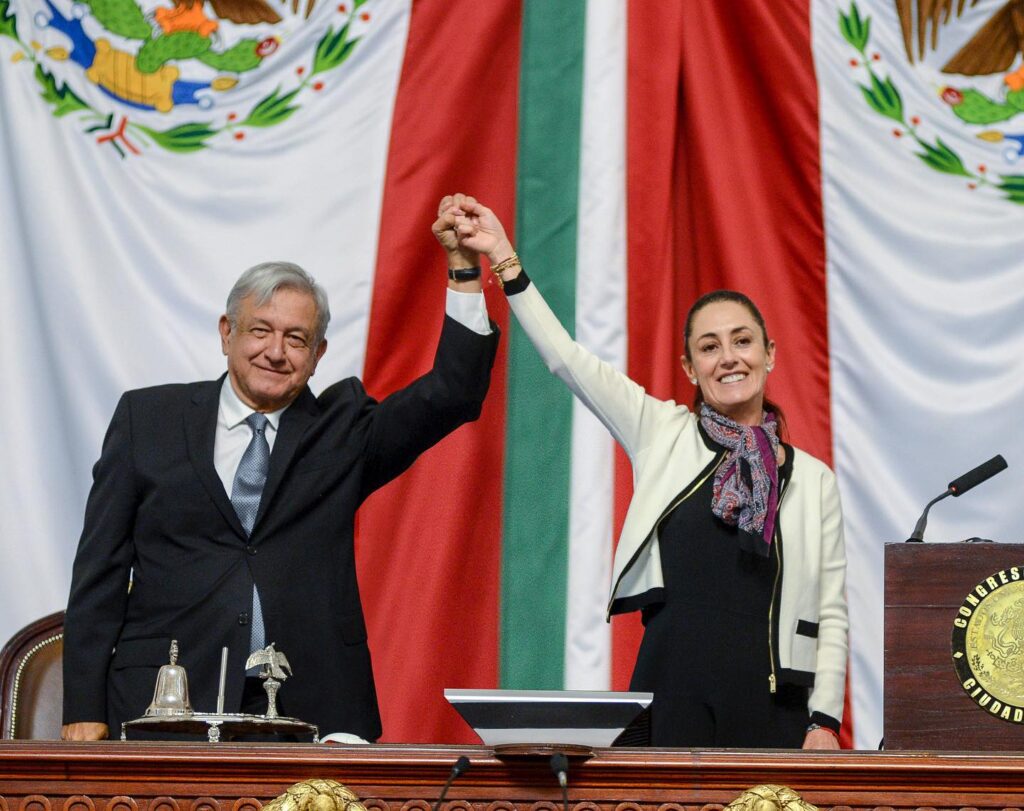 Andrés Manuel López Obrador and Claudia Sheinbaum.
Andrés Manuel López Obrador and Claudia Sheinbaum.Image Source: Claudia Sheinbaum via Facebook.
As part of the incumbent MORENA party, Sheinbaum built on the popularity of outgoing president Andrés Manuel López Obrador to strengthen her campaign, according to the Pew Research Center. With this, she defeated runner-up Xóchitl Gálvez, a candidate for the conservative opposition coalition Strength and Heart for Mexico.
As a scientist, Sheinbaum was invited by López Obrador to lead the Environmental Secretariat of Mexico City during his mayorship in 2000. This marked the beginning of a deep political friendship, for which many have deemed her as the former-president’s legacy bearer, according to Nueva Sociedad, a Latin American socio-political analysis magazine.
Sheinbaum also served as Mexico City’s mayor for the 2018-2023 term, during which she was heavily criticized for allegedly mishandling protests, militarizing public spaces, deploying anti-riot police units, and leading a “witch hunt” against feminists.
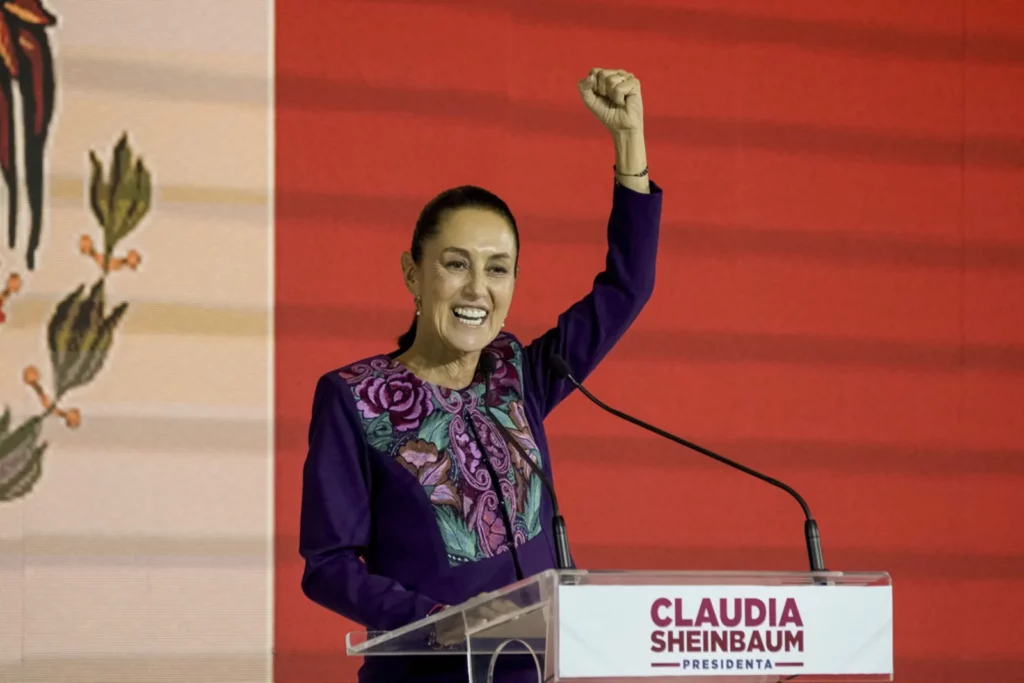 Image Source: Creative Commons Licenses
Image Source: Creative Commons LicensesSince being sworn into office on October 1, however, Sheinbaum has achieved a 76% approval rating, according to a survey published by newspaper El País. So far, the president has notably completed a controversial judicial reform, through which judges will now be selected via popular vote, and announced the construction of one million low-cost homes throughout the country.
Read more: The beginning of the Claudia Sheinbaum era, Mexico’s first woman president
Dominican Republic
The Dominican Republic held its general elections on May 19, in which incumbent president Luis Abinader won with 57.4% of the votes. With this, he secured the presidency on the first voting round.
Originally a businessman, the right-leaning president represents the Modern Revolutionary Party and defeated eight other candidates including former president Leonel Fernández from the leftist Strength of the People Party.
During Abinader’s first presidential campaign for the 2020 elections, he promised to fight corruption and defeated the Dominican Liberation Party, led by Danilo Medina, who was allegedly involved in the Odebrecht corruption case, in which a Brazilian construction company bribed Latin American governments to secure public contracts. According to Dominican newspaper Listín Diario, the scandal sparked widespread protests and discontent, which gave way for Abinader’s successful first campaign.
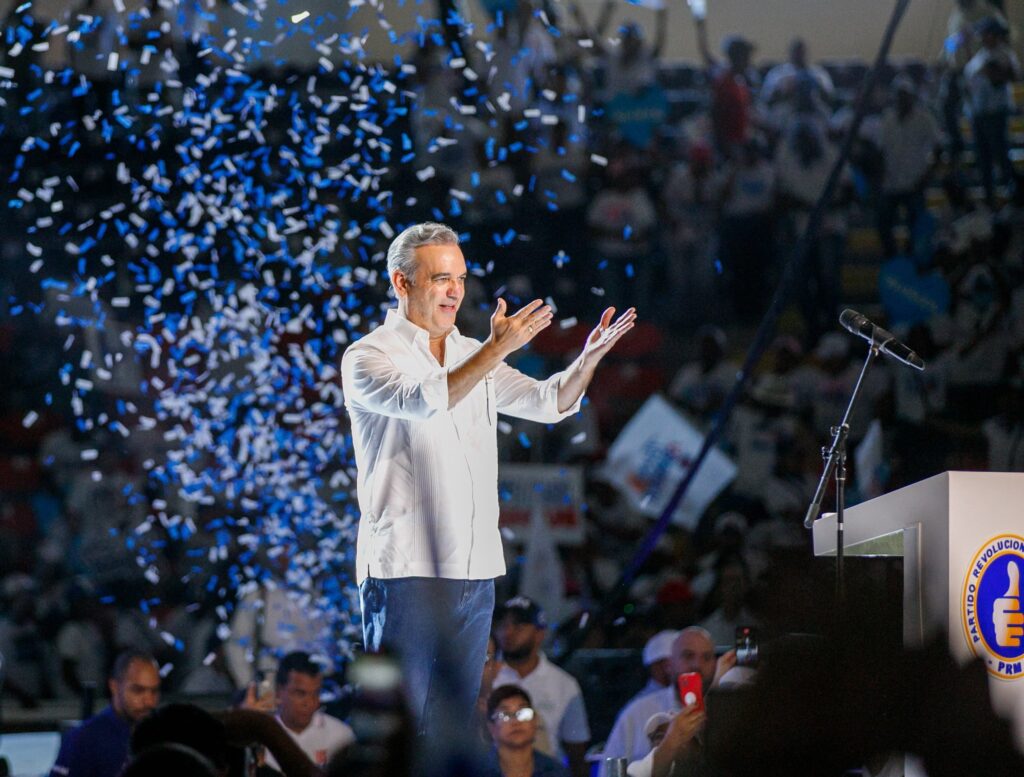 Image Source: Luis Abinader via X.
Image Source: Luis Abinader via X. Once in office, Abinader led a police reform through which 3,000 police officers reportedly received human rights training, and he also implemented a strict migration policy for citizens of neighboring Haiti. In October, Abinader’s office confirmed that the migration policy would continue into his second term, through which they would “deport up to 10,000 migrants per week.”
Throughout his first presidential term, Amnesty International denounced human rights violations against Haitian and Dominican-Haitian populations by migration officers and the armed forces. The organization has also called on the now-reelected president to “eradicate racial profiling, structural racism, and discrimination.”
Regardless, Abinader’s second term promises a Constitutional reform, and a reelection prohibition for presidents who have completed two consecutive terms. Another priority is economic growth through the creation of more jobs and a reform to the Social Security law.
“Four years ago I came before you with the hope for change, and now I do so after having executed such hopeful change. I do not speak from blind optimism, nor from expectations that ignore the obstacles that we will find along the way,” Abinader stated on the eve of his reelection.
Panama
On May 5, Panama went to the polls.The presidential race was marred with discontent with the ruling party and internal turbulence within the opposition party.
Corruption, migration and the economy were at the center of the campaign for voters.
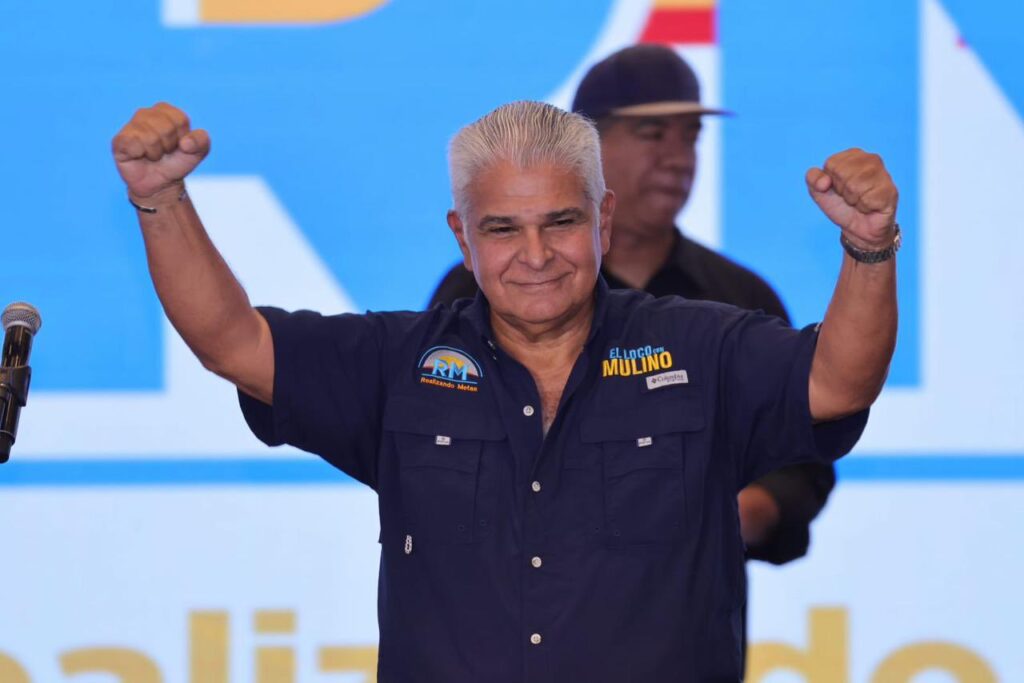 Image Source: José Raúl Mulino via X.
Image Source: José Raúl Mulino via X. The incumbent, Laurentino “Nito” Cortizo, who is widely unpopular with his government being characterized by unprecedented protest movements, had been constitutionally barred from running for a second term.
Right-wing candidate José Raúl Mulino won the election with 34.4% of the vote.
Mulino originally ran as the vice-presidential candidate of former president Ricardo Martinelli. But after a court sentenced Martinelli to 11 years in prison for money laundering and barred him from running for office, Mulino took his place at the top of the ticket.
Mulino was allowed to run in a last minute supreme court decision, and the 64-year-old led the polls by playing up his connection to the ex-president.
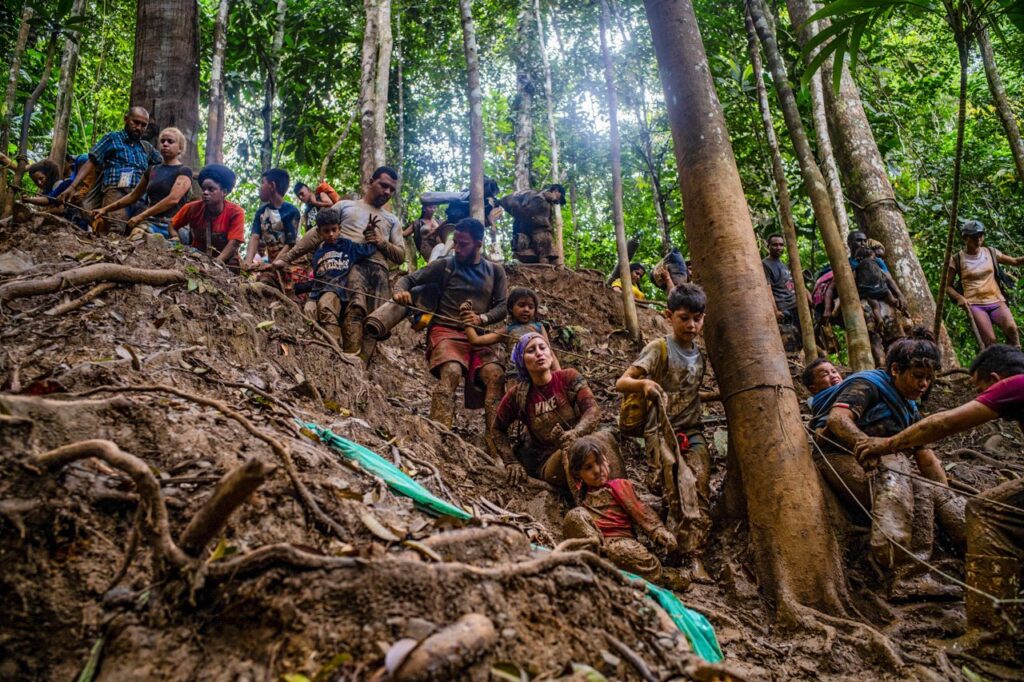 Migrants crossing the Darién Gap.
Migrants crossing the Darién Gap. Image Source: Federico Rios via X.
Anti-corruption candidate Ricardo Lombana came in second with 24.96% of the vote, followed by former President Martin Torrijos and chancellor Rómulo Roux. They all conceded the vote to Mulino the night of the election.
Mulino took office on July 1 for a five-year term, promising a return to strong economic growth and tackling migration in the Darién Gap.
Venezuela
On July 28, Venezuelans went to the polls in an election which would detonate the next chapter in a decade-long political crisis.
In the run up to the election, the government of authoritarian President Nicolás Maduro and the opposition participated in negotiations to set a path for free and fair elections. Despite this, many international analysts and political pundits were wary of what would occur.
The incumbent Maduro has been in power since 2013 after his predecessor Hugo Chavez died from cancer. His presidency has overseen severe economic decline and rising crime which has led to the mass exodus of over 7.8 million Venezuelans from the country.
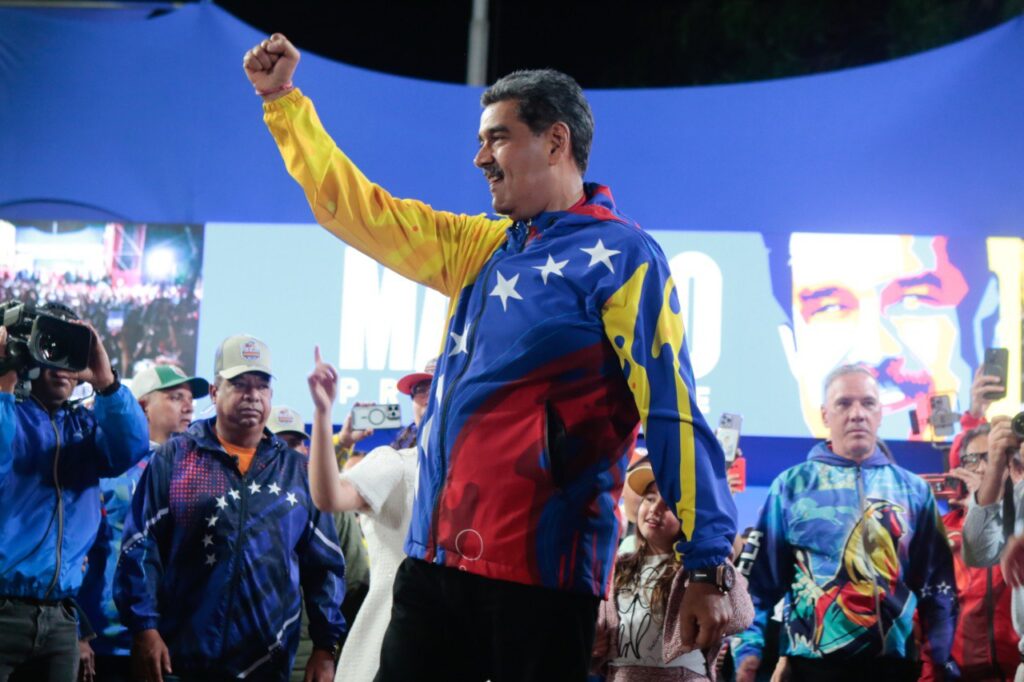 Nicolás Maduro.
Nicolás Maduro.Image Source: PSUV via X.
The last presidential election in 2018, which Maduro won, was widely boycotted by the main opposition coalition amid accusations of fraud. At the time, the US-based organization Freedom House deemed the election “clearly unconstitutional” and called Maduro a “dictator.”
Despite opposition leader María Corina Machado receiving an overwhelming 92.5% majority in the opposition’s primary election in October 2023, the Maduro-allied supreme court upheld a ban which arbitrarily disqualified her from running for office.
The opposition coalition, the Democratic Unitary Platform (PUD), then designated Edmundo González Urrutia, an unknown 75-year-old diplomat, as their alternate candidate.
After what had been mostly peaceful elections on July 28, at midnight on July 29, the Maduro-allied National Electoral Council (CNE), without providing evidence, announced that Maduro had obtained 51.20% of the vote, winning the election.
Soon after, González Urrutia and Machado announced that the opposition had its own results. With the help of thousands of poll watchers organized in 60,000 grassroots groups called “comanditos,” the opposition was able to gather 25,000 precinct-level tally sheets. The tally sheets, called ‘actas’, represent 83.5% of all voting machines in electoral centres around the country.
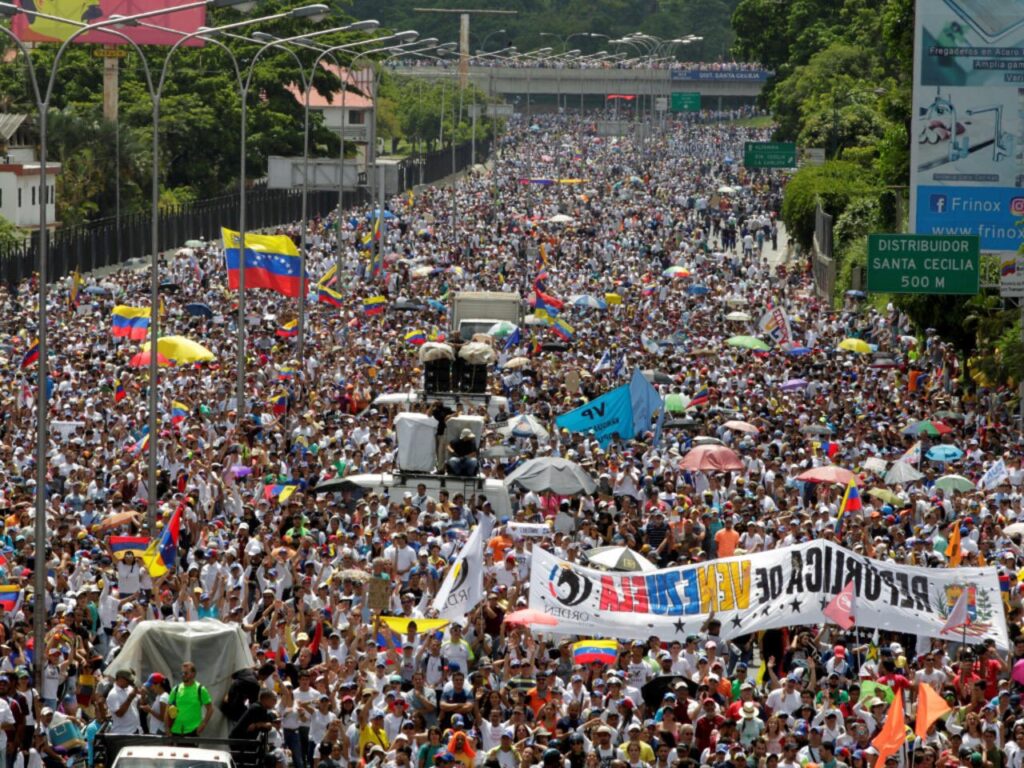 Image Source: Eduardo Menoni via X.
Image Source: Eduardo Menoni via X. The ‘actas’, all of which were published online and reviewed by international election observers as well as media outlets, showed that opposition candidate González Urrutia won with 7.3 million votes and 67%, while Maduro obtained 3.3 million votes and 30% of the vote.
Read more: Down but not out: Venezuelan opposition building electoral fraud case against Maduro regime
The CNE’s results caused a major outcry. Throughout the country, hundreds of spontaneous protests broke out against Maduro’s win. These protests were met with state repression and resulted in over 2,000 detentions.
In September, González Urrutia fled to Spain fearing a crackdown against opposition members by the Maduro government. In fact, a few days before González Urrutia went into exile, the Maduro-allied Public Prosecutor’s Office issued an arrest warrant for the former candidate, accusing him of usurpation of public funds and conspiring against the state, among other crimes.
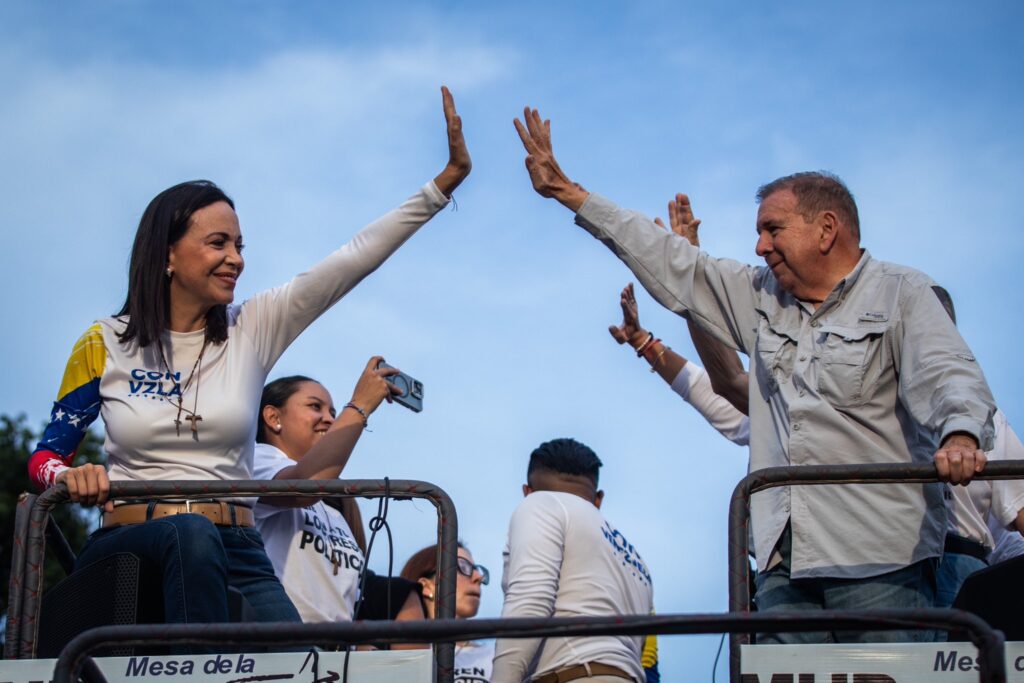 María Corina Machado and Edmundo González Urrutia.
María Corina Machado and Edmundo González Urrutia.Image Source: Edmundo González via X.
From exile, González Urrutia has traveled across Europe, urging leaders to recognize his victory in the elections and “sharing the reality of Venezuela,” as he told Spanish newspaper El País in a December interview.
To this day, the CNE and the Maduro government have yet to provide a detailed breakdown of the voting results. Several international bodies have called their results into question.
The new presidential term in Venezuela is set to start on January 10, 2025. Both Maduro and González Urrutia affirm that they will be sworn into office.
Uruguay
Closing out the Latin American election supercycle was Uruguay, holding its first round of voting on October 27.
During this first round, no candidate obtained the necessary 50% threshold to win the election outright. Yamandú Orsi of the center-left Broad Front coalition led the polls with 44.9%. He was followed by Alvaro Delgado of the incumbent National Party with 29.1% and conservative Andrés Ojeda of the Colorado Party came third with 17.3% of the vote.
The vote went to a runoff election on November 24, where Orsi emerged victorious with 52,08% of the vote. Delgado obtained 47.92%.
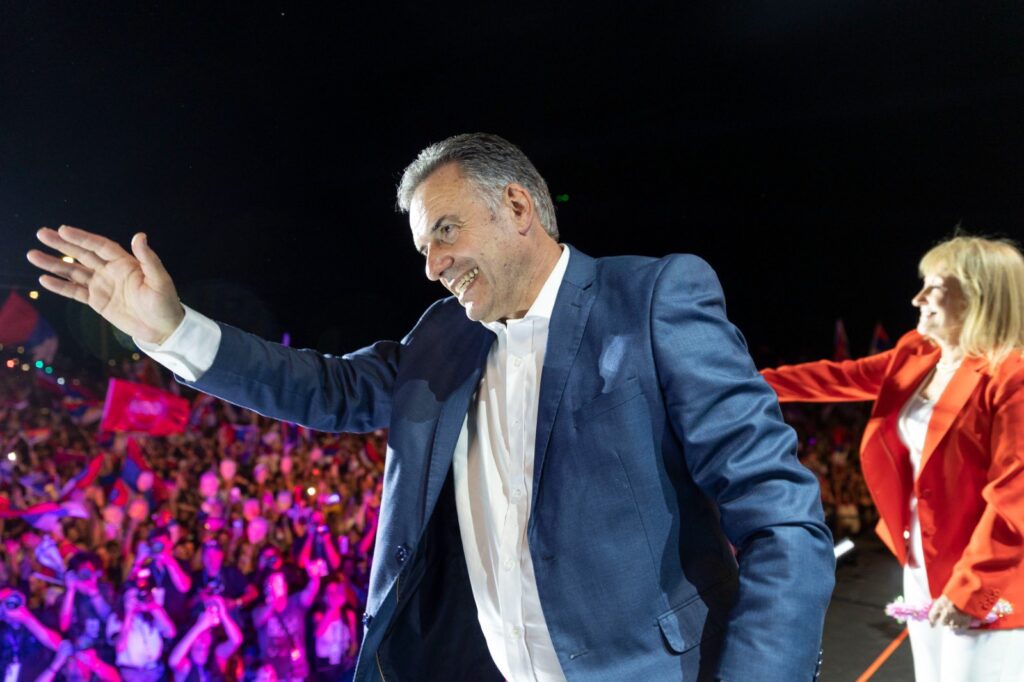 Image Source: Yamandú Orsi via X.
Image Source: Yamandú Orsi via X. The incumbent government had been involved in several scandals, such as resignations after a passport was issued to an internationally-wanted drug-trafficking suspect and charges against former senator Gustavo Penadés involving sexual crimes against minors.
The opposition’s win, however, also reflects a trend in concerns over the nation’s slow economic growth, stagnant wages and rising crime rates.
Read more: Left-wing Broad Front Coalition wins Uruguay’s run-off presidential election
Orsi has said he will lead a “modern left”, stating that he does not have plans for radical change but seeks to address issues such as homelessness, poverty and crime. The president-elect has been labelled the political heir of José Mujica, who held office between 2010 and 2015.
Orsi will be inaugurated into office on March 1, 2025.
What’s to come in 2025:
Looking into the new year, three Latin American democracies will hold elections in 2025.
The first will be Ecuador, with general elections scheduled for February 19. Voting will come after a serious energy crisis that left the country with blackouts of up to 14 hours a day for several months.
Current President Daniel Noboa was elected in 2023 after former President Guillermo Lasso called an unprecedented snap election. With the energy crisis, rising crime and a stagnant economy, Noboa faces a difficult road to reelection.
Both Chile and Honduras will head to the polls in November.
Honduras will hold its primary elections in March 2025. Former first lady Ana García de Hernández is among the 10 candidates registered for the primary vote. She announced her bid after her husband, former president Juan Orlando Hernández, was convicted of aiding drug traffickers in New York City.
In Chile, incumbent Gabriel Boric cannot be reelected to a subsequent six-year term, as per Chilean law. His political legacy may also be at risk, however. Due in part to the lack of a parliamentary majority, Boric’s party – the left-wing Broad Front – has had great difficulty enacting its platform of political and social reforms.
While the ruling coalition performed better than expected in local and regional elections this year, polls point toward a likely opposition win in 2025. But a lot can change in the coming months.

 By Latin America Reports | Created at 2024-12-31 20:46:45 | Updated at 2025-01-04 02:20:44
3 days ago
By Latin America Reports | Created at 2024-12-31 20:46:45 | Updated at 2025-01-04 02:20:44
3 days ago








